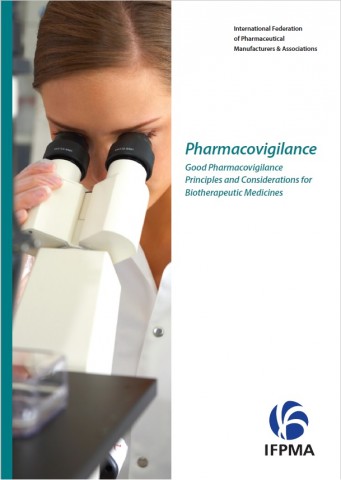
Strengthening
Regulatory Systems
Biotherapeutic medicines
The promising field of biotherapeutic medicines
Our industry is delivering a new generation of treatments known as biotherapeutics, also called biotech drugs or biologics which are made from living organisms: harnessing living cells to make or modify protein products to create therapies.
What’s so special about biotherapeutics?
- Their manufacturing process is very complex;
- They are modified to ensure they function as intended;
- The most effective cell line is selected for expansion and is grown in bioreactors and carefully monitored; and
- They require highly sophisticated production, control, and regulatory processes to ensure their quality, safety, and efficacy.
Harnessing living cells to make or modify protein products allows us to create therapies to treat serious illnesses and ultimately improve patients’ health.



In the last 30 years, biotherapeutics have become an important part of modern medicine. Insulin, used by diabetics to regulate blood sugar, was the first modern medicine produced using biotechnological methods. Since then, many biotherapeutic medicines delivered by our industry have been developed and licensed to treat serious illnesses including cancer, heart disease, multiple sclerosis, anaemia, and rheumatoid arthritis.
Biotherapeutics have the ability to target specific molecules within the human body, and have a good track record with patient safety. Manufacturing biotherapeutics is complex, as they are larger compounds in both size and structure, and can be sensitive to environmental conditions. Moreover, they require sophisticated production and control processes and are dependent upon the host cells of living organisms to produce the necessary active pharmaceutical substances.
In 2013, American biopharma were developing more than 900 biotherapeutics and vaccines, including 338 cancer therapeutics .
As with all medicines, the research and development process for biotherapeutics involves a high degree of scientific and economic risk, so there is a need for strong intellectual property rights, to stimulate the incentive to innovate.

When developing a biotherapeutics, years of research focus on finding the right organism and manufacturing conditions to produce the required protein or antibody. A small change in the manufacturing process can affect the final product. That’s why precision and conformance to scientific requirements are necessary to ensure their quality, safety, and efficacy. In this context, scientists must create the right environment for cells to isolate and purify the biotherapeutic protein so it’s exactly the right product every time.
350 million
patients worldwide are treated with biotherapeutics
20-30 million
patients with rare diseases benefit from biologics worldwide
Over 1'000
biotherapeutic medicines are in the global pipeline


















